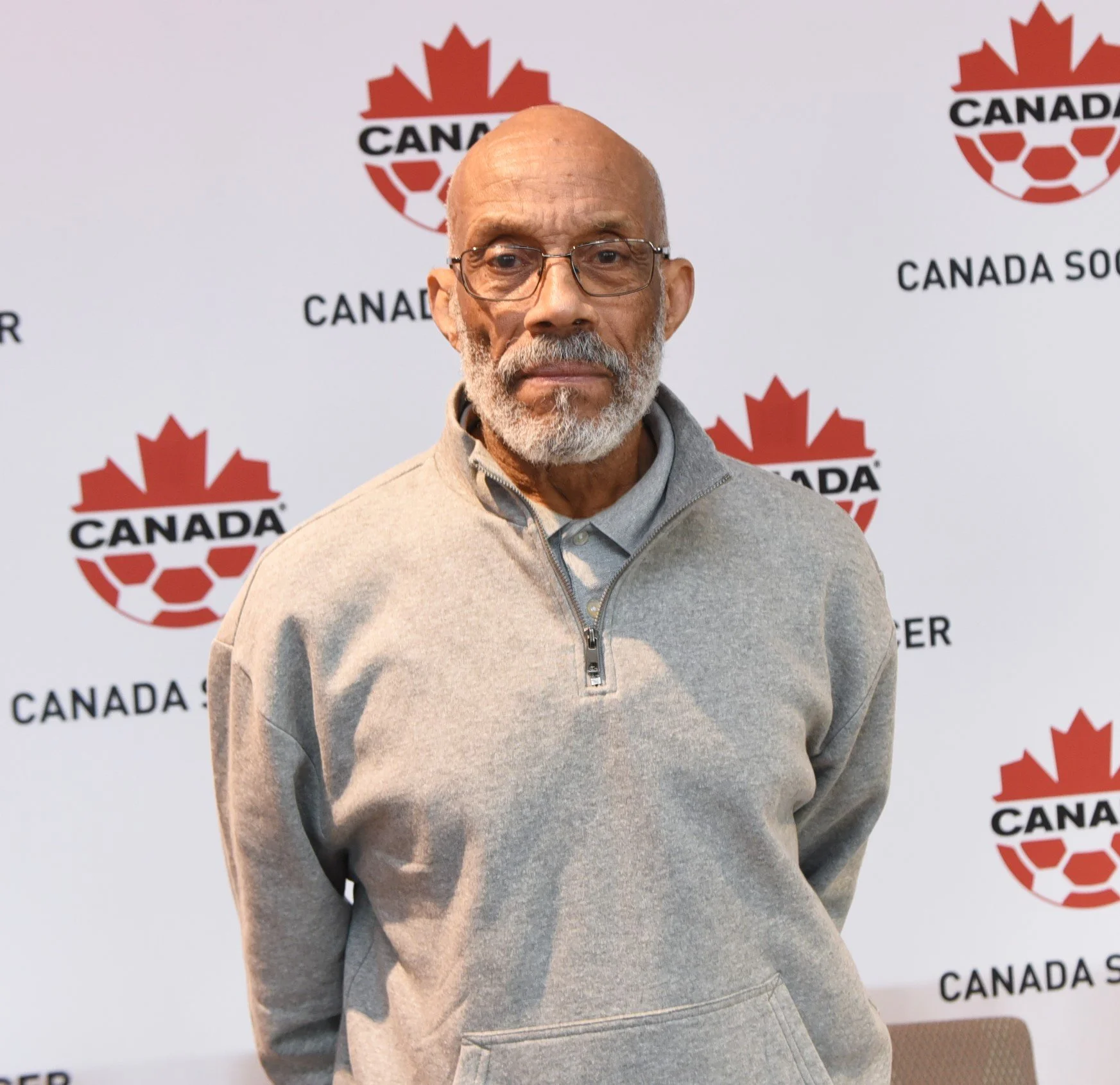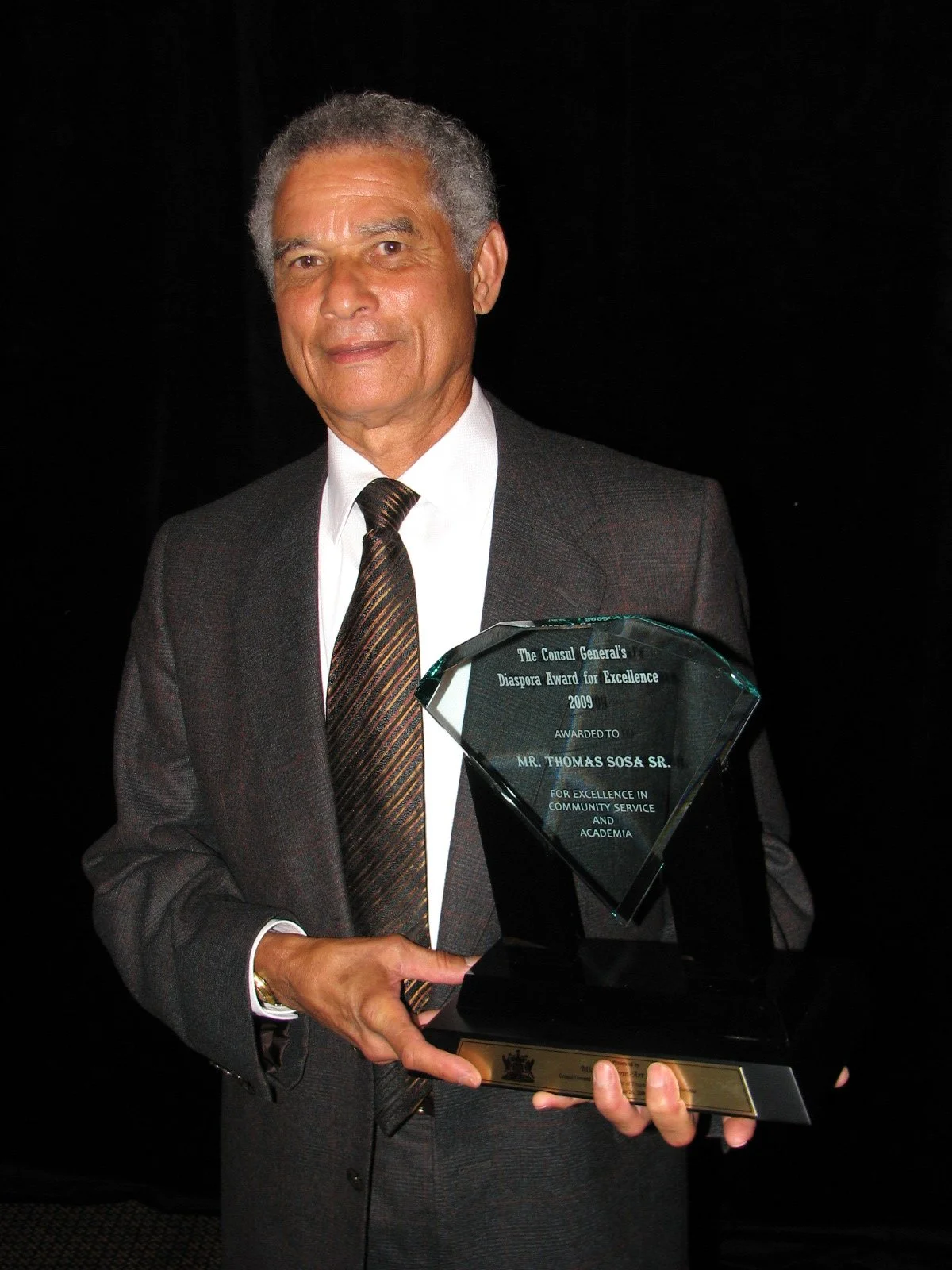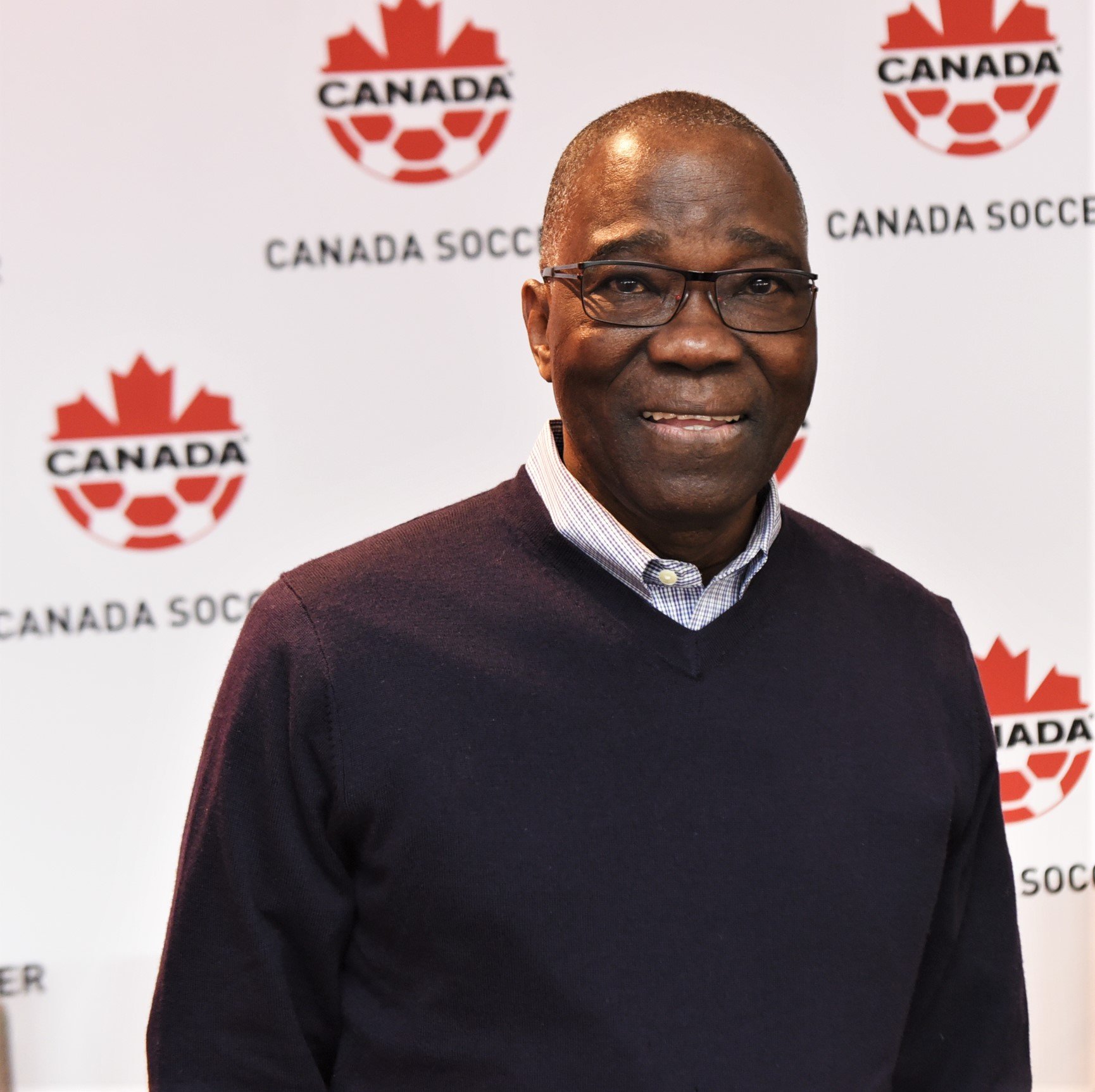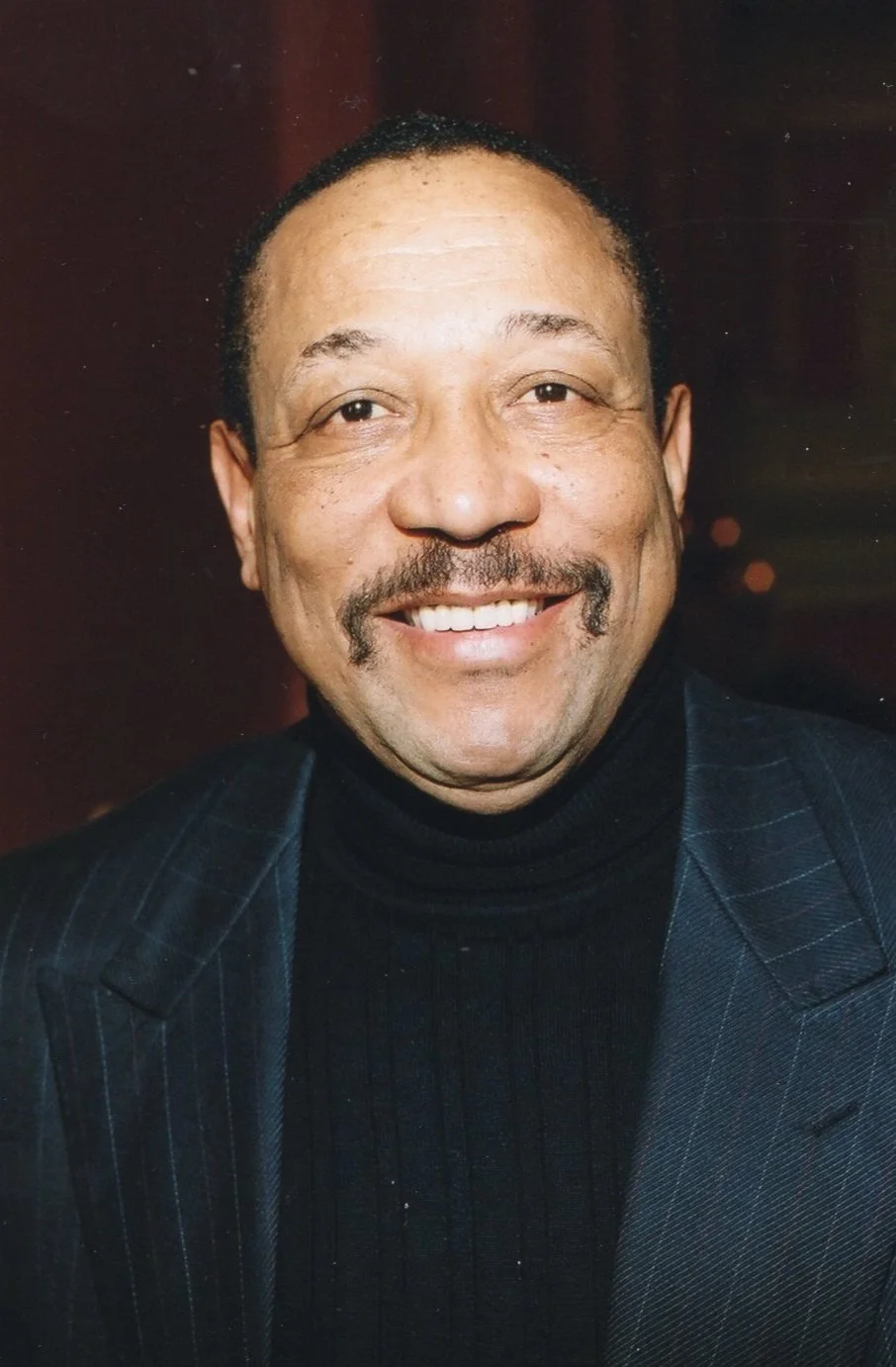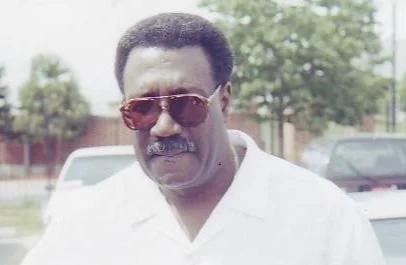Canada Soccer recognizes Toronto West Indies United as Team of Distinction 50 years after the club wins Ontario Cup
March 10, 2023
In the 1960s, many Caribbean students came to Canada to pursue higher education.
Others migrated for a better life.
A few played soccer at a high level in their home countries and were looking for opportunities to continue competing in their adopted homeland.
Toronto West Indies United (TWIU), founded in January 1968 by Kittitian Carl Bailey and a group of mainly immigrants from the Windward & Leeward Islands who came to Toronto via England, was a platform for them to showcase their talent and have fun while making adjustments in a new country.
When Alexander ‘Frano” Francis arrived in the Greater Toronto Area from Jamaica in 1969, he stayed with a sister in Thornhill before moving to the city to be closer to the University of Toronto (U of T) where he completed Urban Planning Studies.
“When we met here in Toronto, the team brought us together moreso than what was happening in the Caribbean,” recalled the Kingston College graduate who assisted with the club’s fundraising and logistics and was the photographer. “The club was truly a uniting organization. Up until that time, many of us had never had any interaction with people outside the Caribbean territories we were from. Looking back, I think we did more in bringing together people from different Caribbean countries than West Indian politicians have done since the formation of CARICOM 50 years ago.”
Arthur Kerr (l), Errol Francis & Noel Henry (Photo by Ron Fanfair)
In August 1973, TWIU made history by clinching the Ontario Cup. They defeated Windsor Italia 2-1 in overtime in the championship game at Centennial Stadium that attracted 1,106 fans.
The post-match celebration took place at Francis’ residence at 841 St. Clair Ave. W.
“At the time, the guys just enjoyed playing the sport,” he said. “There was no financial reward, no long-term goal of winning a championship or going on to play in a professional league because none existed. No one back then would have thought that what the club achieved in 1973 would be celebrated 50 years later.”
To mark the landmark achievement, TWIU is one of six historic clubs that will be recognized as Canada Soccer Organizations of Distinction at this year’s annual awards banquet in Saint John, New Brunswick.
Canada Soccer Board Director Paul Martin said the recognition is deserving.
“Across Canada, we see many communities contributing to building the game,” noted the certified Business coach. “This is a golden time for the sport in this country and we know that West Indies United players’ significant contributions over five decades ago assisted in getting us to where we are today.”
About a year after arriving in Toronto in 1972, former Trinidad & Tobago national soccer player Aldwyn ‘Midget’ McGill learnt a Black team won the Ontario Cup.
“I didn’t know what the Ontario Cup was as I was a newcomer, but I was so proud,” said the 2002 Canadian Professional Soccer League Coach of the Year who spent part of the 1977 season with TWIU. “Back then, West Indies United was like Barcelona (top Spanish club). The players were that good and I want to say to them that they deserve this honour from Canada Soccer.”
Leaving Trinidad & Tobago in 1966, Ernest ‘Junior’ Parker was among the club’s first cohort of players.
Ernest ‘Junior’ Parker (Photo by Ron Fanfair)
“I don’t think a week goes by without a lot of us remembering the glory days and the championships ride,” said Parker who played for Paragon in the Port-of-Spain league. “We had outstanding leadership in the form of Tom Sosa (he died in 2021), the players were skillful and the brand of soccer we played was tremendous.”
Lawyer and former Jamaica sportswriter/broadcaster Errol Townshend was the club’s Publicity & Development Officer during the championship season.
“It was the first time there was a coming-together of a high-quality sporting aggregation among Caribbean people in Toronto,” he pointed out. “There were a number of former international players from the islands who were very skilled.”
Joining TWIU in 1969 a few months after settling in Toronto, Townshend – who spent four seasons with the club – said Sosa played a pivotal role in the club’s drive to the championship.
The late Tom Sosa played a pivotal role in Toronto West Indies United successful championship drive (Photo by Ron Fanfair)
“He was a dynamic force,” added the former Ontario Cricket Association president. “He had a sports background and was very experienced in managing and administering. Tom and then Organizing Secretary Neville Glanville worked well as a team off the field.”
Louis Robinson, who left Jamaica in September 1970 and joined the club the following year, sensed the team was on to something special after beating defending champions San Fili at the then Canadian National Exhibition Stadium.
“Made up of players of mainly Italian heritage, San Fili had a consistency of performance over the years that was quite amazing,” he pointed out. “Lascelles Dunkley (the club’s player/coach at the time) scored a goal in the knockout round that many of us still talk about. Receiving a ball just over the centre line, he coolly chipped it over the advancing goalkeeper’s head.”
Louis Robinson (Photo by Ron Fanfair)
Such was his love for representing the club that Robinson – who spent two years on a soccer scholarship pursuing Chemistry Studies at City University of New York Hunter College before transferring to U of T – returned home for significant late season games when cleared by his university team.
“We were new immigrants faced with the challenge of assimilating to a new culture, so the team became that pivotal stage for us to get together,” he said. “In a sense, it helped to ground us and make the transition a little bit easier.”
The year 1973 was a banner season for TWIU.
In addition to being the best team in Ontario, they made it to the final of the Canadian Challenge Cup six-team knockout series in St. John’s Newfoundland.
After defeating Calgary Kickers on penalty kicks after the score was tied at one at the end of extra time and shutting out Newfoundland Holy Cross 2-0, they lost 2-0 to Vancouver Firefighters in the championship game.
When the Firefighters declined to take part in the National Soccer League Canadian Open Cup final to determine the best team in the country, TWIU stepped in and lost 3-1 to Toronto Croatia at Stanley Park Stadium at the end of September.
The addition of Mike ‘Mitch’ Mitchell and Clarence Prendes helped galvanize the club that season.
“They made a huge impact,” said Derryck Samuels who played nine seasons with the club in midfield before going into administration. “Clarence was a natural goalscorer. Mike came to us as a centre forward but couldn’t crack the starting line-up. Very early in the season, our regular goalie (the late Carl ‘Pele’ Hanse) let in some soft goals in a game at Withrow Park and Mike told the coach he could do better than that. Dunkley replied, ‘Okay’, and put him in goal. The rest is history.”
The versatile Mitchell represented Guyana in four sports – soccer, hockey, rugby and basketball – before migrating to Canada in the late 1960s.
Arriving in Toronto in April 1972, Carlton Martin joined a team in Oakville.
“In my first game, I came off the bench and was replaced by the coach after 20 minutes,” he said. “I was a winger at the time and I did what one at that position does which is deliver a few nice crosses and hustle.”
Derrick ‘Mello’ Melvin, a TWIU supporter and friend of Martin’s family, accompanied the then 19-year-old to the match.
“On the drive back home, Derrick asked why the coach took me out and I told him I didn’t know,” said Martin. “He said, ‘You are not going back to these guys, you will come with me’.”
A few days later, Melvin took the teenager to a TWIU game.
“After the match, I asked him what he thought and he said he could fit it in,” Melvin said. “I told him to stay in the stands and I would talk to Dunkley. I told coach I had a friend that plays the game and inquired if there was room for him on team. He said ‘sure’ and I made the introduction.”
Earl Fough (l), Ivan ‘Chubby’ Cooke & Carlton Martin (Photo by Ron Fanfair)
Born in England to a Jamaican immigrant father and English mother, Martin admitted he was timid and overwhelmed the first time he took the practice field.
“I was a little bit nervous initially because I had never been around so many Black people,” he recalled. “The guys called me ‘Englishman’ and I had a hard time deciphering their dialect. There were about three or four mixed couples in Birkenhead where I was raised.”
The winger-turned-centre-half was surprised to make the TWIU team in 1972.
“I figure the guys saw things in me I didn’t know I had,” Martin said. “Back in England, I didn’t play in an organized league and I didn’t have a coach. The highlight for me with the club was making it to the championship game and winning it. I had never experienced anything like that in my life.”
After two seasons with TWIU, he played with Toronto Italia and First Portuguese Canadian Club before going to Portugal to compete for Vitoria de Setubal and Sporting Clube de Espinho.
A rough start in the club’s early days resulted in Glanville – who made three World Cup qualifying appearances for Jamaica in 1965 at midfield and went on to become the country’s soccer association’s technical director – taking control.
Earl ‘Bugs’ Nelson (l), Lloyd Brown & Vinton Sharpe (Photo by Ron Fanfair)
Just over two decades ago, former TWIU player Earl ‘Bugs’ Nelson helped resuscitate the club that now competes in the Malvern League Over-35 division.
“It is good to see some of the former players coming out to games and supporting the team,” said the ex-defender who coaches the club. “I am still in awe that I was able to play with such an amazing group of talented players. There were times that the Canadian national team requested practice games against us because they recognized how good we were. Some of the guys have passed, but the spirit of West Indies lives on.”



